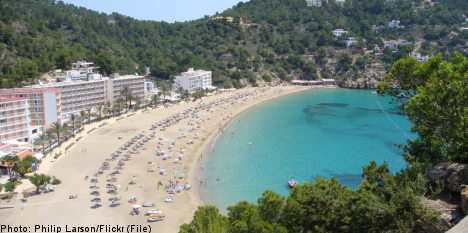Since housing prices in Spain peaked in the first quarter of 2008, prices have dropped by 15 percent on average.
In some resort locations, homes have lost 30 to 40 percent of their value in the last three years.
However, the number of property sales in 2010 is up 6 percent from the year before, the first increase in three years.
In addition, purchases by foreign nationals jumped by 21 percent.
Speaking in Stockholm on Tuesday, Spanish housing state secretary Beatriz Corredor said her country was most concerned about avoiding a new housing bubble, according to the TT news agency.
Estate agent Eva Lundqvist with the Mäklarringen agency said Swedes’ increasing interest in Spanish vacation homes isn’t surprising.
“Prices have fallen and the krona has strengthened against the euro, making it more attractive,” she told TT.
“The euro exchange rate has been so beneficial that you get a lot of house for the money, and the flight time home to Sweden is short.”
At the same time, however, fewer Swedes have been buying holiday properties in Thailand due in part to the uncertainty created by recent political turmoil.
“Thailand was very sought after for awhile, but now it’s not so popular,” Lundqvist said.



 Please whitelist us to continue reading.
Please whitelist us to continue reading.
Member comments